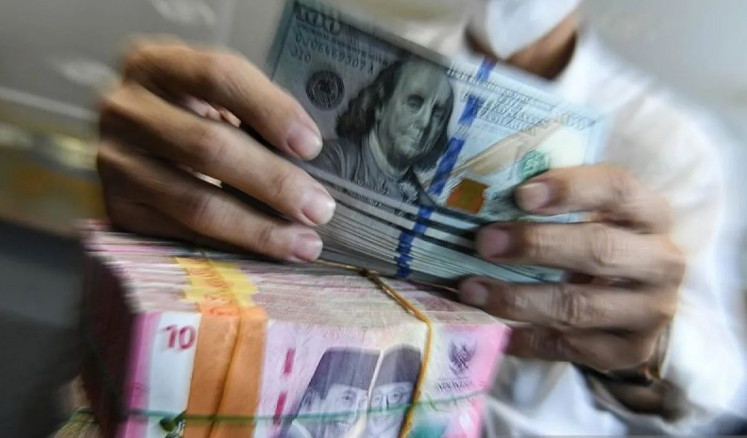Popular Reads
Top Results
Can't find what you're looking for?
View all search resultsPopular Reads
Top Results
Can't find what you're looking for?
View all search resultsRajawali to adopt Felda's technology for business expansion
Industrial conglomerate PT Rajawali Corpora says it plans to strengthen its downstream palm oil business by adopting technology from a Malaysian company that recently bought its shares in local oil palm company PT Eagle High Plantation (EHP)
Change text size
Gift Premium Articles
to Anyone
I
ndustrial conglomerate PT Rajawali Corpora says it plans to strengthen its downstream palm oil business by adopting technology from a Malaysian company that recently bought its shares in local oil palm company PT Eagle High Plantation (EHP).
Rajawali Corpora managing director Darjoto Setyawan said Rajawali had no plan to fully divest its ownership in the palm oil plantation after releasing 37 percent of total 68.5 percent stakes it had to Felda Global Ventures Holdings Bhd (FGV), the world's largest crude palm oil (CPO) producer.
According to Darjoto, Rajawali is instead looking to enhance its business using cutting-edge technology it hopes to adopt from FGV.
Rajawali and Felda signed the deal last week in a ceremony attended by Coordinating Economic Minister Sofjan Djalil and Malaysia's International Trade and Industry Minister, Dato Sri Mustapa Mohamed.
The acquisition helped Rajawali pocket up to US$632 million and 2.6 percent shares in FGV. The money will be used to strengthen Rajawali's cash, for possible future investment and to expand EHP's business.
'What we want from this deal is not simply to release the shares, but also to have the right to vote in FGV, a far more experienced company with the latest palm oil processing technology,' Darjoto told The Jakarta Post in an interview.
With FGV as a strategic partner, Darjoto said, Rajawali hoped to have access to FGV's technology, which offers environmentally friendly and no-waste CPO processing.
It also wants to have access to the Malaysian company's research and development, which will eventually help EHP expand into the downstream business amid volatile CPO prices.
EHP, Darjoto went on, was looking to double its production from a current annual 400 million tons to 800 million tons in five years and establish a downstream business covering biodiesel, cooking oil and oleochemical elements.
'There is a huge opportunity offered by biodiesel business and we are looking to start planning for our biodiesel expansion next year once we have completed the acquisition deal,' he said.
According to Darjoto, the opportunities in the palm oil business are bigger now that government has established a special agency to develop and subsidize biodiesel fuel.
He added that Rajawali was also looking to obtain better access to FGV's quality seed, fertilizer and market. FGV currently operates in 13 countries worldwide.
EHP was known as BW Plantation before Rajawali acquired the publicly listed plantation company through a rights issue and merged it with its own plantation unit, Green Eagle Holding Pte. Ltd., late last year.
Rajawali initially planned to have an at least 50 percent stake in BW Plantation, but as shares floated in the equity offering went unsubscribed on the back of a weak commodity market, the conglomerate proceeded to absorb the remaining shares, planning to release the excess when FGV came in and bid for higher shares.
'We hope a partnership between two ASEAN palm oil producers can benefit both countries and companies. Indonesia and Malaysia are the world largest palm oil producers and by joining hands we can better manage supply and demand and maintain CPO prices,' Darjoto said.
Meanwhile, The Star reported that a Malaysian opposition lawmaker had urged FGV to call off its deal to buy a non-controlling stake, saying that the acquisition was too high, a stance supported by a number of analysts.
Eagle High's purchase price of Rp 780 per share is far higher than the trading price of Rp 378 per share at Wednesday's close.
Darjoto claimed that the price was far lower than buying the shares in the market, which could trigger a price spike.
The enterprise value of the planted hectares to be paid by FGV for Eagle High is $17,400, lower, according to Darjoto, than similar transactions.










